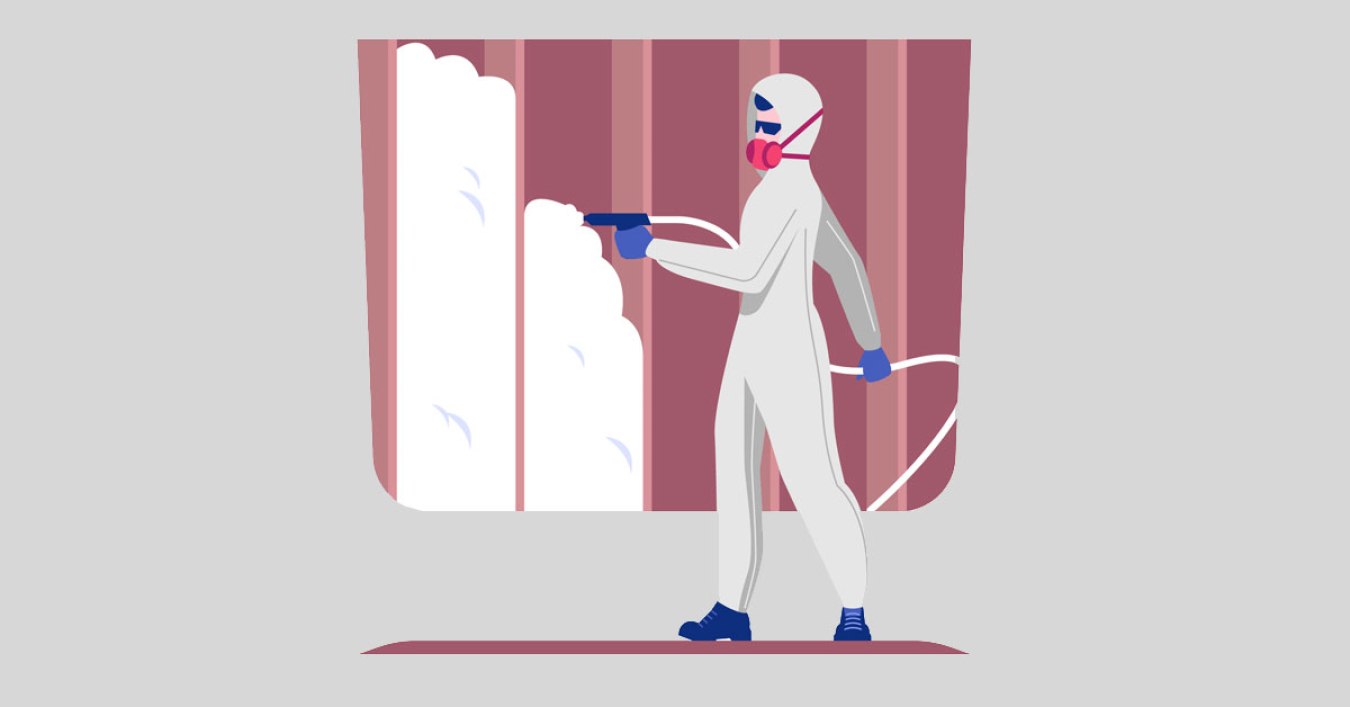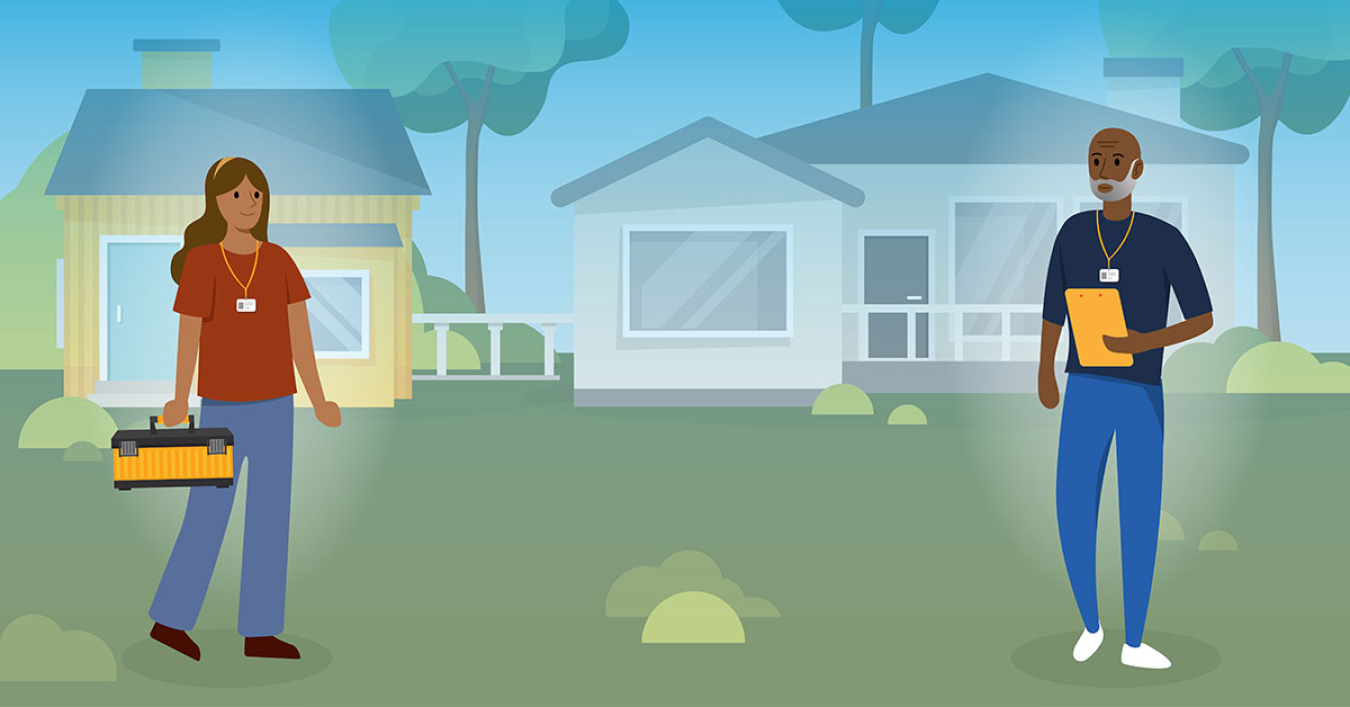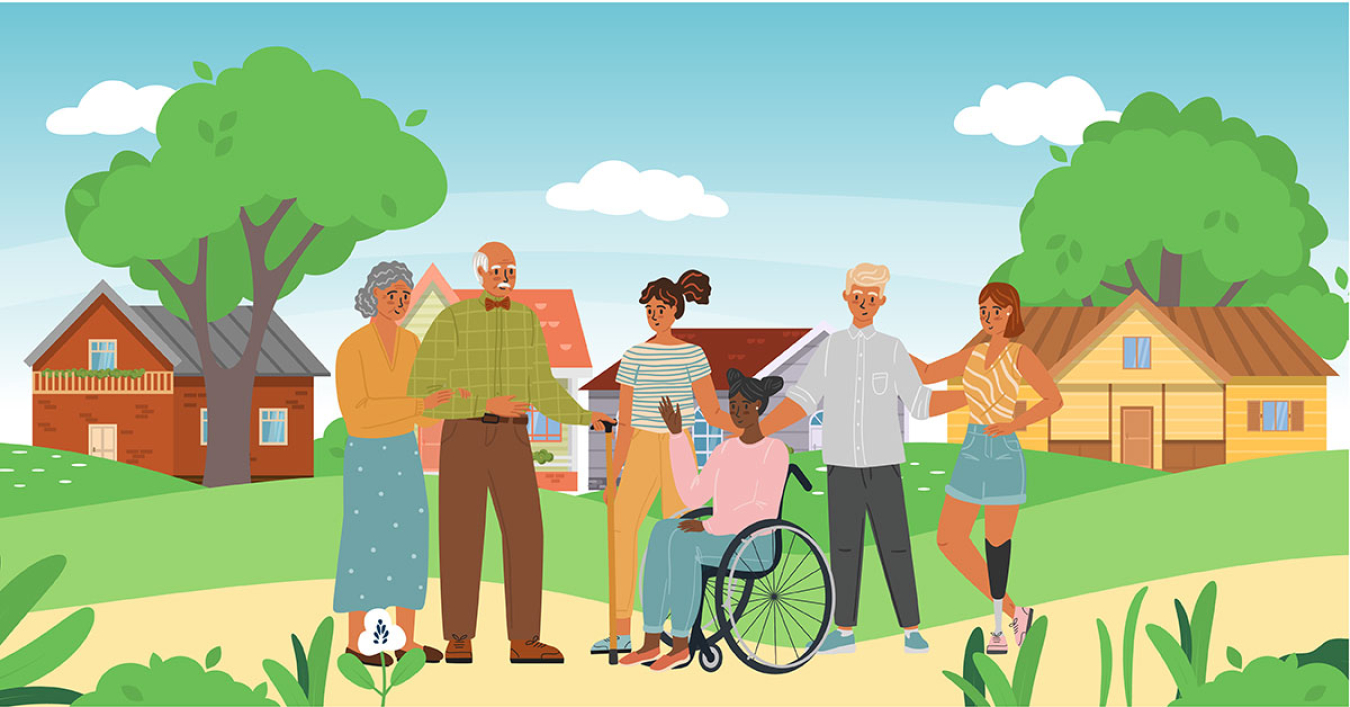Since 2015, Michigan has received $158.4 million from the Weatherization Assistance Program (WAP) and $14.3 million from the State Energy Program (SEP), resulting in the following benefits:

12,518 Homes Weatherized
Michigan reduced energy costs and improved health and safety in 12,518 homes.*

1,145 Jobs Created or Retained
The State Energy Program creates or retains one job for every $12,500 invested.*

168,728 Square Feet of Building Space Retrofitted
Since 2015, Michigan has installed energy efficiency upgrades in 46 buildings.*

Connected with 23,219 People About Energy Efficiency Installations
Michigan held 417 workshops, webinars, trainings, or outreach events since 2015.*
* Findings from a National Evaluation of the State Energy Program and a National Evaluation of the Weatherization Assistance Program.
States report outcomes of State Energy Program and Weatherization Assistance Program formula (annual) fund activities to DOE on a quarterly basis. The metrics above are outcomes of formula-funded activities since 2015.
The SCEP Project Map highlights the annual formula and competitive funding for WAP and SEP.
Michigan's State Energy Program at Work
Catalyst Communities
The Catalyst Communities Initiative is a comprehensive initiative that aims to provide education, training, planning, and technical resources to local governments to take steps toward a just transition to decarbonization.
Designed as an expansion of the Community Energy Management (CEM) Program, the Catalyst Community Initiative provides technical assistance, resources, and funding opportunities to communities for energy management best practices, public engagement, energy efficiency upgrades, adoption of renewable energy, and sponsorships.
This also includes 2030 District support in Ann Arbor, Detroit, and Grand Rapids. 2030 Districts are partnering with their local governments and commercial property owners to achieve significant energy, water, and emissions reductions, and are helping building owners make significant changes to their properties to create reductions necessary to transition to a low carbon economy.
Energy Policy, Planning & Stakeholder Engagement
Energy Services will continue to engage stakeholders to document how local communities currently plan for and incorporate energy into their master plans, ordinances, identify barriers, opportunities, and needs communities are facing in adopting a range of energy management activities. This program created an online database of zoning for renewable energy within the state of Michigan, as well as a repository of templates, guidance, FAQs, case studies, and real-time consultation for local governments regarding their zoning ordinances for renewable energy.
Since this program was initiated, jurisdictions that addressed large-scale wind zoning increased by 8%, and zoning for large-scale solar increased by 47%. The Energy Policy and Planning program continues to analyze Michigan's energy challenges, opportunities, and available data to inform subsequent planning and program development.
Michigan Industrial Manufacturing and Retooling
Michigan provides incentives to qualified small businesses to make capital investments in retooling projects with a strong energy efficiency component, and/or manufacturing of energy efficiency technologies. The goal is to reduce energy consumption, create or retain jobs, and help businesses maintain competitiveness in the marketplace.
Clean Energy Business Development Pilot
Michigan assists individuals and small businesses with clean energy technologies and products, with emphasis given to achieving energy waste reduction in manufacturing processes and the production of innovative energy waste reduction equipment and components.
Since early 2018, the program has assisted 14 businesses with bringing clean energy technologies and products to market, including customized 3D printing of micro-electronics, UVC LED-based hand sanitizer, and advanced electric scooter charging stations.
Michigan Energy Codes Compliance Collaborative Program
Energy Services continues to facilitate the Michigan Energy Codes Compliance Collaborative to identify and address issues of non-compliance with the current Michigan Energy Code. Training and development of resources are high-priority items for the collaborative to make code compliance as simple as possible.
Additionally, funds are made available for codes training in preparation for the new code taking effect to ensure that contractors and code officials are knowledgeable about the code and can therefore comply and enforce the new code effectively. Energy Services also sponsors the Michigan Building Operator Certification (BOC) to increase the knowledge base of building operators in Michigan that will allow for more efficient operation of buildings across the state.
Michigan Low- to Moderate-Income Community Solar
Michigan's Low- to Moderate-Income Access Program uses a community solar model to enable low- to moderate-income customers to access solar, obtain weatherization services, and save on their electric bills. The program currently has three models that represent the various utility scenarios in Michigan, a cooperative utility, municipal utility, and an investor-owned utility. Each of these models represents a close partnership between the electric utilities (Cherryland Electric Cooperative, Village of L'Anse Electric Utility, and Consumers Energy), state government, and weatherization and community action entities.
Since the start of the program in 2018, 75 Michigan households have signed up to participate in the first two community solar projects, with Cherryland's 50 subscribers each receiving bill credits averaging about $350 per year, and the L'Anse project subscribers earning about $275 in solar bill credits each year. The third project within the investor-owned utility will sign up 50 additional households.
Through these pilot projects, Michigan will develop a guide for other communities seeking to implement low-income community solar projects.
Learn more about SEP competitively awarded projects.
Michigan's Weatherization Assistance Program at Work
The Michigan Department of Health and Human Services (MDHHS) holds the responsibility for overseeing Michigan's Weatherization Assistance Program (WAP). The Michigan WAP contracts with 25 local community action agencies and nonprofit organizations to implement weatherization enhancements in low-income households across all 83 counties in the state.
Michigan has established its own IREC-accredited mobile training center known as the Michigan Training & Education Center (MiTEC). MiTEC serves as a local resource, affording Michigan's WAP professionals convenient access to fulfill their training and certification requisites.
Between the years 2013 and 2023, the state of Michigan accomplished an annual average of 1,387 households weatherized utilizing Department of Energy formula funds.
Success Stories
Read other SCEP News and Success Stories.
Michigan Takes Initiative
Better Buildings Initiative
More than 900 organizations are involved in the Better Buildings Initiative working to reduce energy and water waste and modernize the nation’s buildings and industrial facilities. Download the 2023 Better Buildings Progress Report for more information on the Initiative as a whole.
Better Buildings Accelerators
In the past five years, SCEP has engaged nearly 100 partners in Better Buildings Accelerators. These Accelerators are designed to demonstrate specific innovative policies and approaches, which will accelerate investment in energy efficiency upon successful demonstration. Each Accelerator is a targeted, short-term, partner-focused activity designed to address persistent barriers that stand in the way of greater efficiency.
To learn more about other Better Buildings partners and solutions in the state of California and other states involved in the Better Buildings Initiative, check out the Better Buildings Partner map.
ESPC Accelerator Partners
The state of Michigan helped catalyze public-sector energy efficiency investments of over $2.1 billion in Energy Savings Performance Contracting (ESPC) from 2014–2016 as one of 25 state and local agency partners in the ESPC Accelerator. See demonstrated best practices in the ESPC Toolkit.
Outdoor Lighting Accelerator Partners
The cities of Dearborn, Detroit, and Flint, and the Southeast Michigan Regional Energy Office, partners in the Outdoor Lighting Accelerator (OLA) from 2014-2016, pledged to upgrade its streetlights as a part of a nationwide commitment to retrofit 1.3 million light poles with high performance lighting. These commitments are expected to result in annual savings of $48 million. See the Outdoor Lighting Toolkit for more information and demonstrated best practices.
Sustainable Wastewater of the Future (SWIFt) Initiative
The state of Michigan committed to improving the energy efficiency of their participating water resource recovery facilities as part of the Sustainable Wastewater Infrastructure of the Future (SWIFt) Initiative Phase 1 from 2016-2019. SWIFt Phase 1 hosted 25 state, regional, and local agencies that engaged with more than 70 water resource recovery facilities in their jurisdictions and successfully reduced their total energy consumption by almost 7%, adopted best-practice energy management approaches showcased in the Wastewater Energy Management Toolkit, and created plans to achieve 30% energy savings.
Additionally, the state of Michigan and the cities of Detroit, Grand Haven, Grand Rapids, Grandville, Holt, Traverse City, and Ypsilanti have gone on to join SWIFt Phase 2. SWIFt Phase 2 is engaging wastewater treatment facilities in a voluntarily partnership to achieve 5% short-term and 25% long-term facility-wide energy savings and implement at least one next-generation technology (e.g., renewable energy, resource recovery, and advanced data management).
Publications, Resources, Helpful Links
- State and Local Solution Center, a one-stop shop of impactful public-sector resources
- Weatherization Assistance Program
- State Energy Program
- NASEO State Energy Office Contact
- Contact State Weatherization Agency
- EIA Michigan State Profile and Energy Estimates
